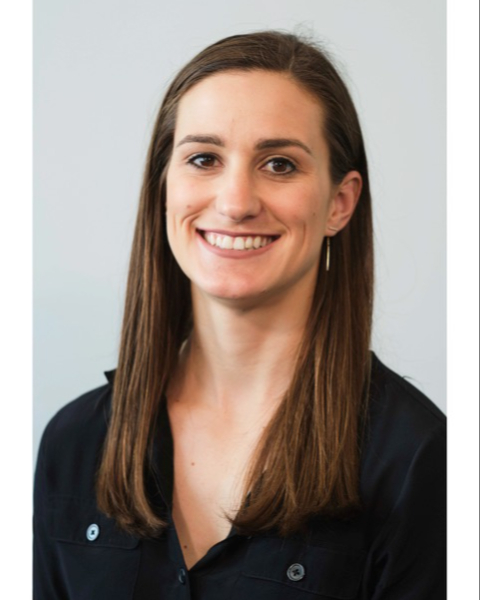Adult Depression
Symposium 87 - Bridging Idiographic and Nomothetic Science: Expanding Conceptualizations of Psychological Phenomena to Build Personalized Treatments
Level of Familiarity: Basic to moderate
Recommended Readings: Fisher, A. J., Leenaerts, N., & Victor, S. E. (2023, September 16). A Logical Approach to Necessity and Sufficiency. https://doi.org/10.31234/osf.io/jt7m4,
-
CC
Claire Cusack, M.S. (they/she)
Graduate Student
University of Louisville
Louisville, Kentucky, United States -

Cheri Levinson, Ph.D. (she/her/hers)
Associate Professor
University of Louisville
Louisville, Kentucky, United States -
CC
Claire Cusack, M.S. (they/she)
Graduate Student
University of Louisville
Louisville, Kentucky, United States -

April Smith, Ph.D. (she/her/hers)
Associate Professor
Auburn University
Auburn, Alabama, United States -

Lauren Forrest, Ph.D.
Assistant Professor
University of Oregon
New Cumberland, Pennsylvania, United States -

Aaron Fisher, Ph.D.
Associate Professor
University of California, Berkeley
Berkeley, California, United States
Chair(s)
Discussant(s)
Presenter(s)
On average, evidence-based psychotherapy treatments have small effects on symptoms across a range of mental disorders (Leichsenring et al., 2022). In response, clinical researchers have sought to develop personalized psychotherapy in efforts to develop more effective treatments for more people. Much of this research is based on empirical literature showing individual heterogeneity across and within various psychiatric diagnoses (Lilienfeld, 2014). Despite increasing recognition that mental disorders and their presentations are unique to the individual person and their context, psychological phenomena have been predominantly researched by examining groups of individuals (Fisher et al., 2011; Molenaar, 2004). Knowledge of a group of people is important for understanding psychopathology generally. However, generalizations from group-level analyses do not reflect intra-individual processes that occur at the individual level (Molenaar, 2004), thus limiting clinical utility, as therapy is often delivered to an individual (Hayes & Toarmino, 1995). In recent years, there has been renewed interest in taking an idiographic (i.e., individual, N = 1) approach to studying psychopathology (Golino et al., 2022). For example, clinical scientists have applied idiographic analyses to examine a range of psychiatric conditions, such as depression (Fried & Nesse, 2015), anxiety (Fisher et al., 2019), and eating disorders (Levinson et al., 2022). Findings from this research indicate that disorders are exceedingly heterogeneous and marked by inter- and intra-individual variability.
Although individuals have person-specific dynamics that govern their symptoms, similarities exist among people, often by design (e.g., diagnostic classification). For example, individuals with bulimia nervosa engage in binge eating episodes and compensatory behaviors; individuals with generalized anxiety disorder, worry. Thus, the question is how idiographic approaches extend our knowledge of psychological phenomena broadly, beyond characterizing the individual, and what implications this research may have for treatment. In this symposium, presenters will share idiographic research on life-threatening behaviors (e.g., suicidal ideation, eating disorder symptoms) across various at-risk populations (e.g., military service members, sexual minority individuals in rural areas) and discuss the implications of their findings as they relate to challenging and expanding existing conceptualizations of psychological phenomena.
Learning Objectives:
- Summarize tensions between idiographic and nomothetic research
- Present a perspective on how research focused on the individual advances conceptualizations of psychological phenomena broadly
- Present data from ecological momentary assessment that indicate person-specific differences, as well as group-level communalities
- Describe how facets of diversity included and excluded from the study designs may impact results
- Discuss future personalized and group-level treatment implications
Presentations:
-
12:30 PM - 1:30 PM EST(SYM 87) Group- and Individual-dynamics Associated with the Urge to Restrict
Speaker: Claire Cusack, M.S. (they/she) – University of Louisville
Co-author: Cheri Levinson, Ph.D. (she/her/hers) – University of Louisville
-
12:30 PM - 1:30 PM EST(SYM 87) One of Us Is Not Like the Other: Extreme Individual Differences in Risk Factors for Suicidal Ideation in at Risk Service Members and Veterans
Speaker: April Smith, Ph.D. (she/her/hers) – Auburn University
Co-author: Lauren Forrest, Ph.D. – University of Oregon
Co-author: Cheri Levinson, Ph.D. (she/her/hers) – University of Louisville
-
12:30 PM - 1:30 PM EST(SYM 87) Group-, Subgroup-, and Individual-level Paths Among Suicide Risk Processes in a Sample of Rural Sexual Minority Adults at High Risk for Suicide
Speaker: Lauren Forrest, Ph.D. – University of Oregon
Co-author: Sarah Hauryski, BS – University of Minnesota
Co-author: Devon Peterkin, BS – University of Oregon
Co-author: Emily Ansell, PhD – The Pennsylvania State University
-
12:30 PM - 1:30 PM EST(SYM 87) Bridging the Idiographic-nomothetic Divide: Identifying Generalizable Emotional States
Speaker: Aaron J. Fisher, Ph.D. – University of California, Berkeley

.png)
